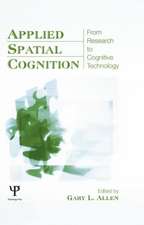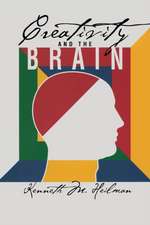Complex Problem Solving: Principles and Mechanisms
Editat de Robert J. Sternberg, Peter A. Frenschen Limba Engleză Paperback – aug 1991
Preț: 590.55 lei
Preț vechi: 694.76 lei
-15% Nou
Puncte Express: 886
Preț estimativ în valută:
112.100€ • 118.30$ • 93.50£
112.100€ • 118.30$ • 93.50£
Carte tipărită la comandă
Livrare economică 05-19 aprilie
Preluare comenzi: 021 569.72.76
Specificații
ISBN-13: 9780805806519
ISBN-10: 0805806512
Pagini: 435
Dimensiuni: 152 x 229 x 24 mm
Greutate: 0.6 kg
Ediția:New.
Editura: Taylor & Francis
Colecția Psychology Press
Locul publicării:Oxford, United Kingdom
ISBN-10: 0805806512
Pagini: 435
Dimensiuni: 152 x 229 x 24 mm
Greutate: 0.6 kg
Ediția:New.
Editura: Taylor & Francis
Colecția Psychology Press
Locul publicării:Oxford, United Kingdom
Public țintă
ProfessionalCuprins
Contents: Part I:Reading, Writing, and Arithmetic. K.E. Stanovich, A.E. Cunningham, Reading as Constrained Reasoning. M. Bryson, C. Bereiter, M. Scardamalia, E. Joram, Going Beyond the Problem as Given: Problem Solving in Expert and Novice Writers. S.M. Sokol, M. McCloskey, Cognitive Mechanisms in Calculation. Part II:Social Sciences. J.F. Voss, C.R. Wolfe, J.A. Lawrence, R.A. Engle, From Representation to Decision: An Analysis of Problem Solving in International Relations. R.K. Wagner, Managerial Problem Solving. J. Funke, Solving Complex Problems: Exploration and Control of Complex Social Systems. E. Amsel, R. Langer, L. Loutzenhiser, Do Lawyers Reason Differently from Psychologists? A Comparative Design for Studying Expertise. Part III:Natural Sciences. M. Hegarty, Knowledge and Processes in Mechanical Problem Solving. A. Lesgold, S. Lajoie, Complex Problem Solving in Electronics. D.S. Kay, Computer Interaction: Debugging the Problems. Part IV:Games. P.A. Frensch, R.J. Sternberg, Skill-Related Differences in Game Playing. Part V:Conclusions. E. Hunt, Some Comments on the Study of Complexity.
Recenzii
"...succeeds in providing readable introductions...a major accomplishment. It is very easy to overwhelm readers with the complexity of the tasks and the complexity of the models designed to describe performance on the tasks. Add to this the unfamiliarity of the tasks to many readers and the authors have a major challenge on their hands. They clearly meet the challenge....useful for researchers working within the domain of problem solving as well as for people seeking a basic understanding of this topic."
—Contemporary Psychology
"...strengthens psychology's claim to new domains and methods in the study of problem solving....if you have been wondering what has been happening recently in the higher end of cognitive psychology, then this book is well worth reading."
—American Journal of Psychology
"...contains chapters of uniformly high quality that illustrate how cognitive psychology is coming to understand complex problem solving in a wide range of human endeavors. There is a rich offering of methods, findings, and research problems in the areas of reading, writing, and calculation through to problem solving in electronics, legal reasoning, and international relations....Students of problem solving will appreciate the change that this book represents from the earlier experimental work on simple laboratory tasks."
—Robert Glaser
University of Pittsburgh
—Contemporary Psychology
"...strengthens psychology's claim to new domains and methods in the study of problem solving....if you have been wondering what has been happening recently in the higher end of cognitive psychology, then this book is well worth reading."
—American Journal of Psychology
"...contains chapters of uniformly high quality that illustrate how cognitive psychology is coming to understand complex problem solving in a wide range of human endeavors. There is a rich offering of methods, findings, and research problems in the areas of reading, writing, and calculation through to problem solving in electronics, legal reasoning, and international relations....Students of problem solving will appreciate the change that this book represents from the earlier experimental work on simple laboratory tasks."
—Robert Glaser
University of Pittsburgh
Notă biografică
Robert J. Sternberg, Peter A. Frensch




















